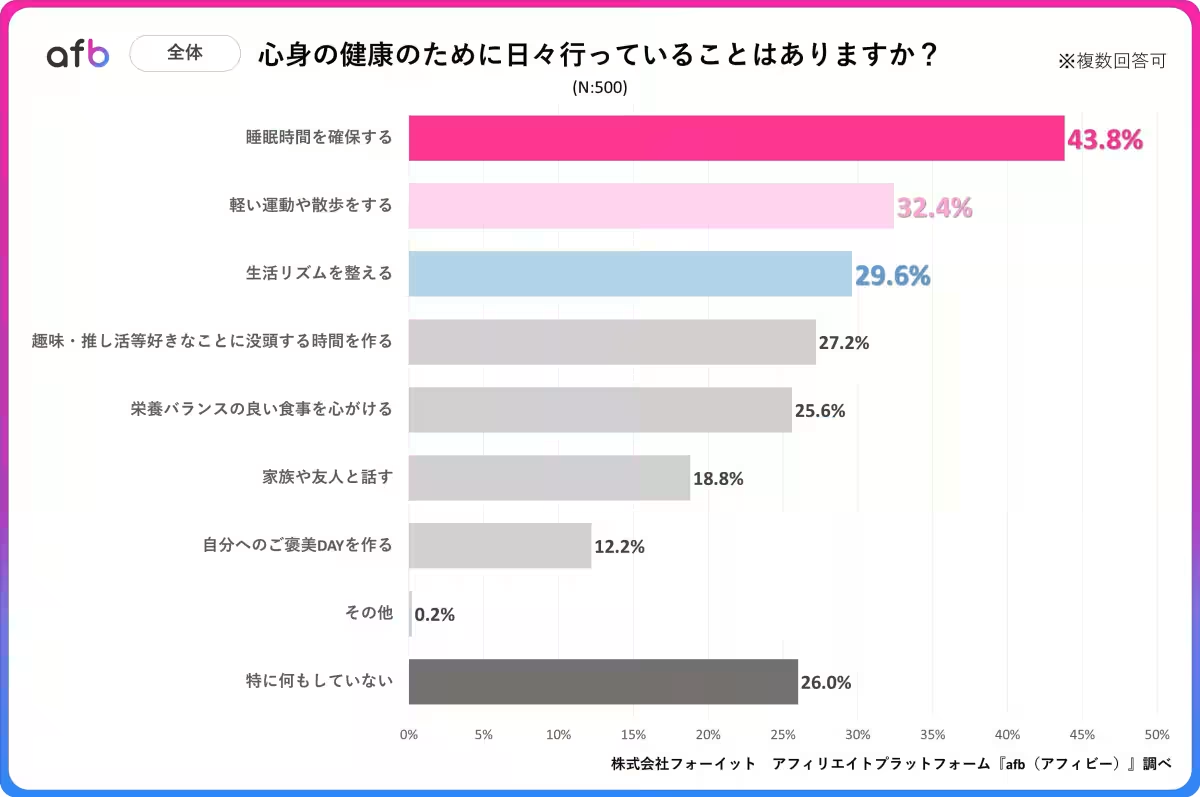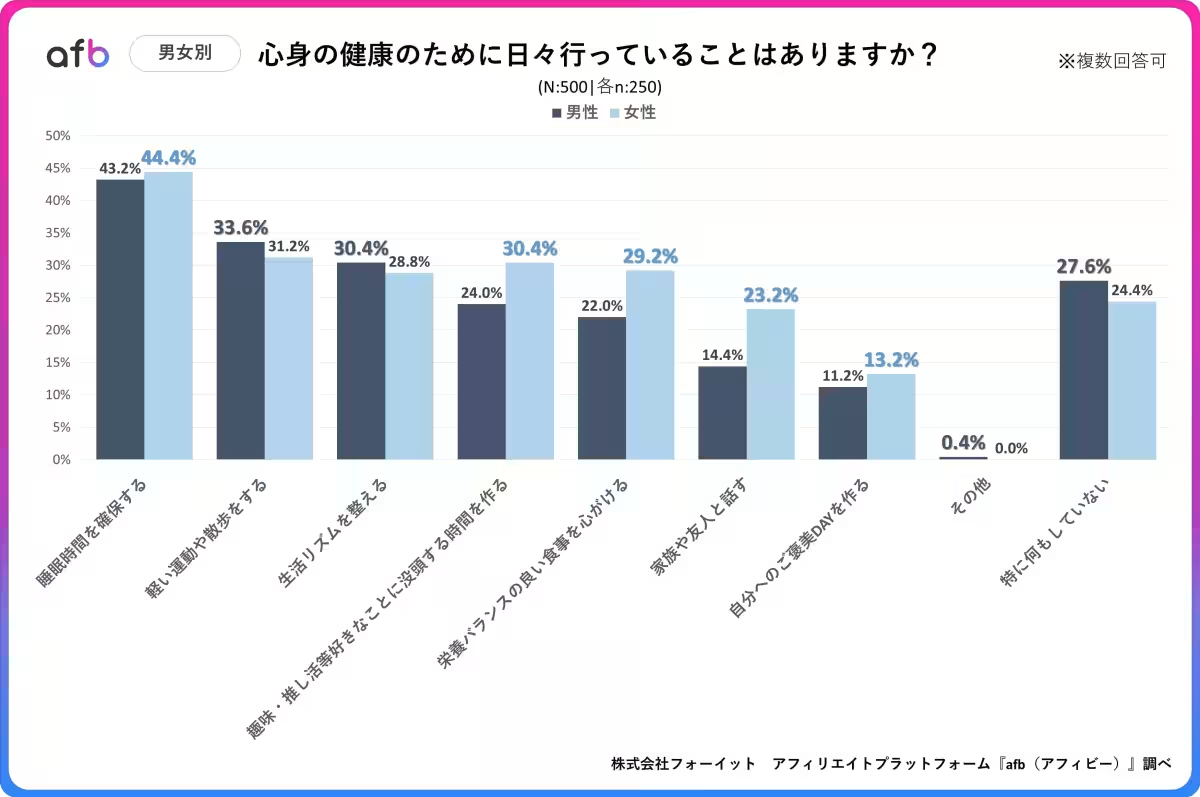

Insights on Daily Self-Care Routines Among Japanese Adults in Their 20s to 60s
Daily Self-Care Insights from a Recent Survey
In a world that is rapidly changing, balancing mental and physical health has never been more crucial. A recent survey conducted by For-It Co., Ltd., the operator of the affiliate platform "afb," sheds light on the self-care habits of Japanese adults aged 20 to 60. With a focus on practices that promote well-being, the survey's findings underscore the importance of sleep and social interactions in maintaining a healthy lifestyle.
Background of the Study
As the pace of life accelerates and societal changes unfold, many individuals are feeling the strain of stress and health issues. In light of these challenges, there is a growing recognition of the significance of daily self-care and healthy habits. This survey, conducted nationwide among 500 respondents, aimed to uncover the practices people prioritize for their mental and physical well-being.
Survey Overview
- - Target: Males and females aged 20 to 69 years
- - Sample Size: 500 people
- - Location: Nationwide
- - Method: Online research
- - Date Conducted: April 18, 2025
Key Question: What Do You Do Daily for Your Health?
When asked about their daily health practices, respondents had multiple options to choose from:
1. Ensuring sufficient sleep
2. Regulating their daily rhythm
3. Engaging in light exercise or walks
4. Setting aside time for hobbies or personal interests
5. Creating a self-reward day
6. Talking with family or friends
7. Paying attention to a balanced diet
8. Other (write in)
9. Not doing anything in particular
Survey Results
The results showcased that the most common practice among participants was ensuring sufficient sleep, reported by 43.8% of respondents. This was followed by light exercise or walks at 32.4%, and regulating one's daily rhythm at 29.6%. Interestingly, 26% of those surveyed admitted to doing nothing in particular for their health.
Female Respondents: A Different Approach
Analyzing the results by gender reveals interesting trends. Female respondents notably reported higher engagement in social interactions, with 10% more women stating that they talked with family and friends as a coping mechanism. They also embraced hobbies and maintained balanced diets more than their male counterparts, who were slightly more likely to claim they were 'not doing anything.' This highlights the emotional coping strategies many women employ by focusing on relationships and personal interests to manage stress. Women appear to be more influenced by health and beauty information from media and social networks, leading them to incorporate these insights into their daily lives more rigorously.
Youth and Health Engagement
Diving deeper into age demographics, the survey revealed that 36% of 20-somethings reported doing nothing for their health, the highest across all age groups. Younger adults often feel their youth protects them from health concerns, leading to less engagement in self-care. In contrast, older individuals from their 30s to 50s showed a greater commitment to sleep, with nearly 50% reporting it as a health priority. This trend indicates an evolution in self-care awareness as individuals age, likely due to increased physical and mental health challenges.
The Influence of Marital Status
When examining the data between single and married respondents, there was a significant difference in self-care practices, with 31.7% of singles claiming to do nothing versus only 17% of married individuals. Additionally, married participants reported engaging more in conversations and maintaining balanced diets, suggesting that the support of close-knit family and friends helps facilitate healthier lifestyles. Unmarried individuals, especially those living alone, may struggle more with maintaining a balanced diet and regular social interactions due to reliance on convenience foods.
Conclusion: Health Awareness Across Generations
Overall, while younger generations may seem healthier at a glance, there is a clear lack of engagement in health-promoting activities compared to older groups. It is essential to emphasize that practicing self-care can lead to substantial improvements in quality of life (QOL). As individuals of all ages navigate their personal health journeys, incorporating small, beneficial habits into daily routines can pave the way for better mental and physical health.
In conclusion, the insights from this survey highlight the varied approaches to self-care among different age groups and genders, emphasizing the need for an open dialogue about health practices across generations. For further details on the survey and insights into affiliate marketing, visit afb.






Topics Health)










【About Using Articles】
You can freely use the title and article content by linking to the page where the article is posted.
※ Images cannot be used.
【About Links】
Links are free to use.